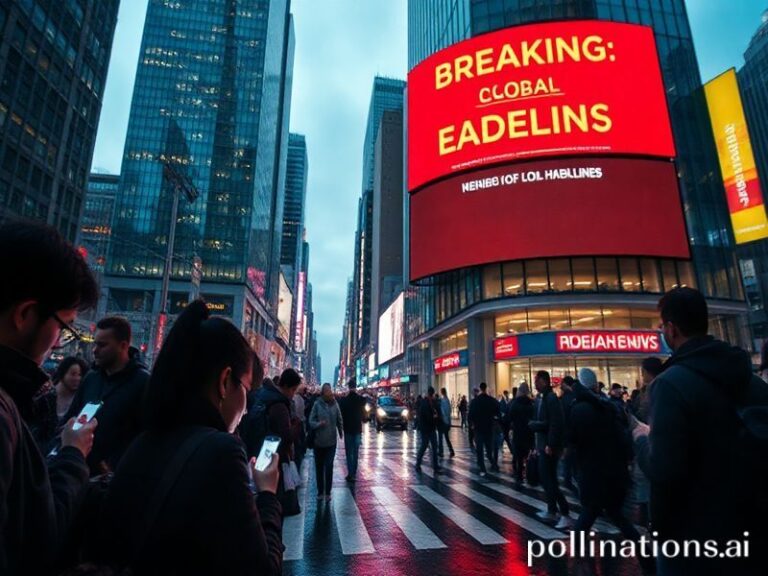Arthur T. Demoulas: The Grocer Who Accidentally Terrified Global Capitalism
Arthur T. Demoulas, the mild-mannered grocery baron who once turned a regional supermarket chain into a New England folk-hero saga, has quietly become the unlikeliest case study in global capitalism’s nervous breakdown. While the rest of the planet was busy panic-buying toilet paper and watching Netflix documentaries about tinned fish, “Artie T.”—as his employees still call him with the sort of reverence normally reserved for saints or at least moderately competent baristas—proved that a family-run produce aisle can teach Davos more about stakeholder value than a thousand PowerPoint decks.
Let’s zoom out for a second. From Singapore to São Paulo, CEOs are currently reassuring jittery investors that they “put people first,” usually seconds before announcing another round of layoffs and a fresh stock-buyback scheme. Meanwhile, the Market Basket drama of 2014—when Artie T. was ousted by his cousin, triggering employee walkouts, customer boycotts, and the sort of inter-family squabbling that makes Succession look like a Montessori circle time—reads like a cautionary fairy tale for late-stage global capitalism. Workers, managers, even loyal shoppers took to the streets in protest, demanding the return of a boss who knew the price of bananas and the names of their kids. The board blinked, Artie T. returned, sales roared back, and somewhere in Palo Alto a venture capitalist spilled his oat-milk cortado wondering why “employee engagement software” hadn’t produced the same results.
The international implications are deliciously ironic. China’s state media, never one to miss a chance to troll Western hypocrisy, pointed to Market Basket as evidence that “American workers prefer family harmony to shareholder primacy.” European unions, meanwhile, adopted the episode as Exhibit A in their campaign to codify “worker veto rights” on executive pay—because if a modest New England grocer can pull off a corporate coup d’état in flip-flops, surely Volkswagen can manage it with leather loafers. In India, management schools now use the saga as a case study titled “Cousin Rivalry, Customer Loyalty, and the Curious Persistence of Decency,” a phrase that sounds oxymoronic until you realize the alternative is another lecture on WeWork.
But the broader significance lies in the uncomfortable truth Artie T. exposes: people will still inconvenience themselves—march in the rain, shop at pricier competitors, stage viral TikTok protests—for the quaint notion that their labor matters to the person signing the checks. This terrifies the multinational set. If the serfs start believing that dignity is negotiable, what happens to the carefully constructed illusion that the global supply chain is held together by ESG reports and quarterly webinars? Goldman Sachs did not spend decades perfecting the art of the shareholder letter just to watch it undone by a guy who once delivered turkeys to every employee on Thanksgiving.
Of course, cynics will note that Market Basket remains a regional chain, its reach running out somewhere around the New Hampshire liquor-store border. But scale, as any crypto evangelist will tell you, is often just another word for “too big to feel human.” Artie T.’s genius was never about empire; it was about refusing to treat empire-building as the only metric. In a world where Jeff Bezos is blasting himself into low-Earth orbit for sport and grocery apps track your ovulation cycle to nudge you toward premium ice cream, that feels almost revolutionary, or at least quaintly suicidal.
So here we are, circling back like a shopping cart with a wonky wheel. The next time some Davos darling drones on about “purpose-driven leadership,” remember the guy in the rumpled blazer who knew that purpose starts with not treating your checkout clerks as interchangeable barcode scanners. And if you find yourself in a Market Basket parking lot, squint past the Dunkin’-fueled chaos and behold the rarest commodity of the 21st century: a boss who didn’t need a global pandemic to discover that employees are human. How wonderfully, tragically retro.







